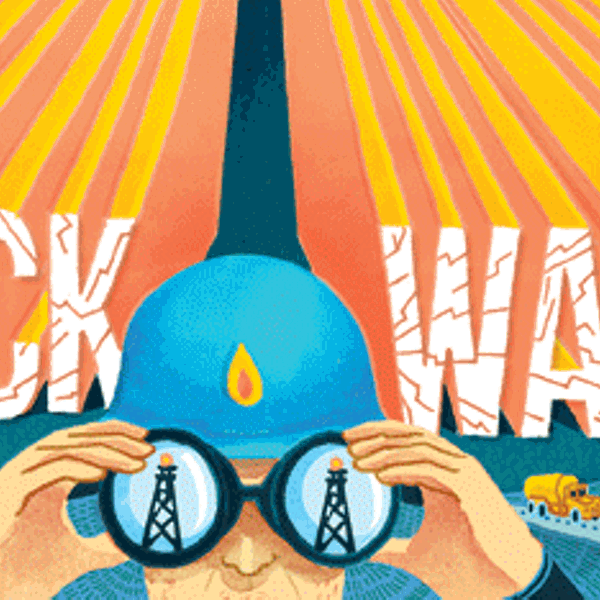Denied the right to live independently, women in Saudi Arabia are finally speaking out. Women throughout the country have been getting behind the wheels of cars, taking their pictures, and recording videos of themselves driving—a silent protest that rejects social laws forbidding them to do just that. Saudi Arabia remains the only in the country in the world where women are denied the right to drive. The country's "guardianship laws" delineate other such restrictions as women cannot marry, travel abroad, or work without the consent of a male relative. Some women have not been bothered while driving, but others have been chased by mobs of men. Mohammad al-Nujaimi, a prominent sheik, led a delegation of 100 sheiks to the royal court in Jeddah to appeal to the king against "the conspiracy against women driving."
Source: New York Times
Sugar and spice and everything...contaminated? On October 30, the Food and Drug Administration released a report that found insect parts, whole insects, rodent hairs, and other such contaminants in nearly 12 percent of spices imported to the US. Seven percent of the spices were found to have contained salmonella. The insects found in the spices thrive in warehouses and storage facilities, leading the FDA to conclude that the industry's problem does not lie in its harvesting procedures, but rather in its storage practices. Unlike salmonella, many types of bacteria transmitted by the creepy crawlers does not decompose upon being heated. Imports from Mexico and India account for the highest rate of contamination, with nearly one-quarter of all spices, oils, and food colorings used in the US originating in India, accounting for spices like cinnamon, saffron, and ginger. Margaret A. Hamburg, FDA commissioner, planned to visit India this fall to discuss the contamination with spice industry officials, but the government shutdown delayed her efforts.
Source: New York Times
Rule one in publishing: Know your audience. Jim Bequette, editor-in-chief of Guns & Ammo, was condemned by readers for having forgotten this after running an article advocating gun regulation. "I thought it would generate a healthy exchange of ideas of gun rights," he claimed, but he gravely miscalculated. The magazine's Facebook page became the platform for an attack on Bequette, with readers demanding his resignation. Succumbing to the pressure, Bequette apologized and resigned on November 7. The author of the piece, Contributing Editor Dick Metcalf, was fired.
Source: Advertising Age
Though some Hudson Valley cities have been rapidly growing in sophistication over the past decade, others have earned a more depraved image on a national level. In a study performed by Forbes in February, Poughkeepsie was rated the 18th "most miserable city in America." The examination considered nine factors for the 200 largest metro areas in the US, including violent crime, unemployment, foreclosures, taxes (income and property), home prices, commute times, weather, and net migration, the last being the newest bullet point on the list. To appease its readership, Forbes dropped its rankings for both pro sports team success and political corruption. Detroit, which occupied the number two position on last year's list, now stands as the worst of the worst. New York City earned a place as the 10th-worst city, its long average commute surely adding to dissatisfactions.
Source: Forbes
What's the fracking problem? The hydraulic fracturing and natural gas industry has been forced to rethink its strategies after three Colorado cities passed bans or moratoriums on fracking. This act comes with much weight as Colorado, a major producer of gas and oil, has remained tolerant of drilling within its borders until now. Citizens in Colorado have grown concerned with four major provisions of drilling: air quality, noise, dust production, and groundwater contamination. Though it did not cause much environmental damage, a flood that swept across fracking sites in September might have caused an increase in disapproval. Floyd Ciruli, a pollster and political analyst, believes state legislators will be prompted to tighten regulations on the industry. Two of the three cities that have restricted fracking are known for their highly Democratic demographic, reaffirming change is more likely in less conservative areas. A September telephone survey conducted by the Pew Research Center of over 1,500 people revealed a heavy increase in disapproval for fracking in states other than Colorado.
Source: New York Times
Sweden has been compelled to close four prisons after a steady decline in crime. Since 2004, prisoner sentences have fallen by 1 percent each year, dramatically dropping 6 percent between 2011 and 2012. Two of the closed prisons will be sold, while the other two will be given to government authorities for temporary use. Nils Öberg, the head of Sweden's prison and probation services, hopes that Sweden's liberal prison approach, with its strong focus on rehabilitating prisoners, had accounted for the decrease. Though reasons for the drastic decrease remain unknown, Swedish courts and their recent more lenient sentences for drug offenses may play a partial role. Of the fall in prison population since 2004, 36 percent related to theft, 25 percent to drugs, and 12 percent to violent crimes. Of all the countries in the world, the US has the most prisoners, with a populace of 2,239,751.
Source: Guardian
Trapped beneath a mountain of debt? There's a chance a stranger might buy it from you. A group of Occupy Wall Street activists bought almost $15 million of Americans' personal debt over the last year as part of the Rolling Jubilee Project. The project, organized by Occupy's Strike Debt group, buys debt on the secondary debt market, which consists of debt from individuals who consistently fail to pay bills. Lenders eventually cut their losses by selling that debt to a third party for nickels on the dollar. The project has relieved 2,693 people across 45 states and Puerto Rico, though Occupy's main objective has been to raise public awareness of this secondary market and the ability of debtors to renegotiate their debt.
Source: Guardian (UK)

















